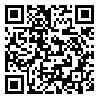Volume 9, Issue 4 (Autumn 2023)
JCCNC 2023, 9(4): 309-316 |
Back to browse issues page
Department of Nursing, College of Health Sciences, Mindanao State University, Main Campus, Mindanao State University, Marawi, Philippines. , hamdoni.pangandaman@msumain.edu.ph
Abstract: (959 Views)
Background: The COVID-19 pandemic has compelled many educational institutions to employ flexible learning options (FLO), requiring technology integration in teaching. Digital immigrant nurse educators, who are educators born before 1985, may need help adopting FLO due to their limited technological knowledge and skills. This study explores the challenges digital immigrant nurse educators face in adopting FLO as a teaching strategy during the COVID-19 pandemic.
Methods: Employing a qualitative phenomenological research approach, we researched 6 digital immigrant nurse educators with at least 10 years of teaching experience in the nursing institution at the College of Health Sciences of Mindanao State University in Marawi City, Philippines. These educators, expressing difficulty in adopting FLO, were purposively selected and interviewed from October 2021 to April 2022. Interviews were conducted through a scheduled Zoom meeting. For this purpose, an interview guide with open-ended questions was used. Colaizzi’s method of analysis was applied to analyze the data.
Results: We identified 4 themes representing the challenges digital immigrant nurse educators face in adopting FLO. The themes comprised a lack of technological knowledge and skills, difficulty adjusting to new teaching methods, inadequate technological resources, and emotional stress and exhaustion.
Conclusion: Given the challenges experienced by Filipino digital immigrant nurse educators in integrating FLO amid the pandemic, this study recommends providing support and resources to improve these nurse educators’ technical knowledge and skills. Continuous education is crucial for successfully integrating FLO into their teaching practices.
Corresponding author: Hamdoni Pangandaman, Email: hamdoni.pangandaman@msumain.edu.ph
You can also search for this author in: Google Scholar
Methods: Employing a qualitative phenomenological research approach, we researched 6 digital immigrant nurse educators with at least 10 years of teaching experience in the nursing institution at the College of Health Sciences of Mindanao State University in Marawi City, Philippines. These educators, expressing difficulty in adopting FLO, were purposively selected and interviewed from October 2021 to April 2022. Interviews were conducted through a scheduled Zoom meeting. For this purpose, an interview guide with open-ended questions was used. Colaizzi’s method of analysis was applied to analyze the data.
Results: We identified 4 themes representing the challenges digital immigrant nurse educators face in adopting FLO. The themes comprised a lack of technological knowledge and skills, difficulty adjusting to new teaching methods, inadequate technological resources, and emotional stress and exhaustion.
Conclusion: Given the challenges experienced by Filipino digital immigrant nurse educators in integrating FLO amid the pandemic, this study recommends providing support and resources to improve these nurse educators’ technical knowledge and skills. Continuous education is crucial for successfully integrating FLO into their teaching practices.
Corresponding author: Hamdoni Pangandaman, Email: hamdoni.pangandaman@msumain.edu.ph
You can also search for this author in: Google Scholar
Full-Text [PDF 523 kb]
(230 Downloads)
| | Full-Text (HTML) (87 Views)
Nurse educators born before 1985 may have limited knowledge and skills in technology.
• These educators, known as digital immigrants, faced challenges adopting flexible learning options (FLO) during the pandemic.
• Digital immigrant nurse educators in this study experienced 4 challenges in adopting FLO: Lack of technological knowledge and skills, difficulty adjusting to new teaching methods, inadequate technological resources, and emotional stress and exhaustion.
• These challenges hinder the adoption of FLO by digital immigrant nurse educators.
• Providing ongoing support, resources, and training can help improve technical knowledge and skills and enable the successful integration of FLO into their teaching practices.
Plain Language Summary
Digital immigrant educators often struggle with technology due to their limited exposure and unfamiliarity with its practical applications. They find adapting to new teaching methods challenging and may lack access to essential technological resources. Additionally, implementing flexible learning options during the pandemic has increased emotional stress and exhaustion for these educators. They needed support, training, and resources to improve their technological proficiency and emotional well-being, ultimately enhancing the quality of education for students.
• These educators, known as digital immigrants, faced challenges adopting flexible learning options (FLO) during the pandemic.
• Digital immigrant nurse educators in this study experienced 4 challenges in adopting FLO: Lack of technological knowledge and skills, difficulty adjusting to new teaching methods, inadequate technological resources, and emotional stress and exhaustion.
• These challenges hinder the adoption of FLO by digital immigrant nurse educators.
• Providing ongoing support, resources, and training can help improve technical knowledge and skills and enable the successful integration of FLO into their teaching practices.
Plain Language Summary
Digital immigrant educators often struggle with technology due to their limited exposure and unfamiliarity with its practical applications. They find adapting to new teaching methods challenging and may lack access to essential technological resources. Additionally, implementing flexible learning options during the pandemic has increased emotional stress and exhaustion for these educators. They needed support, training, and resources to improve their technological proficiency and emotional well-being, ultimately enhancing the quality of education for students.
Type of Study: Research |
Subject:
General
Received: 2023/06/3 | Accepted: 2023/11/10 | Published: 2023/11/1
Received: 2023/06/3 | Accepted: 2023/11/10 | Published: 2023/11/1
| Rights and permissions | |
 |
This work is licensed under a Creative Commons Attribution-NonCommercial 4.0 International License. |





